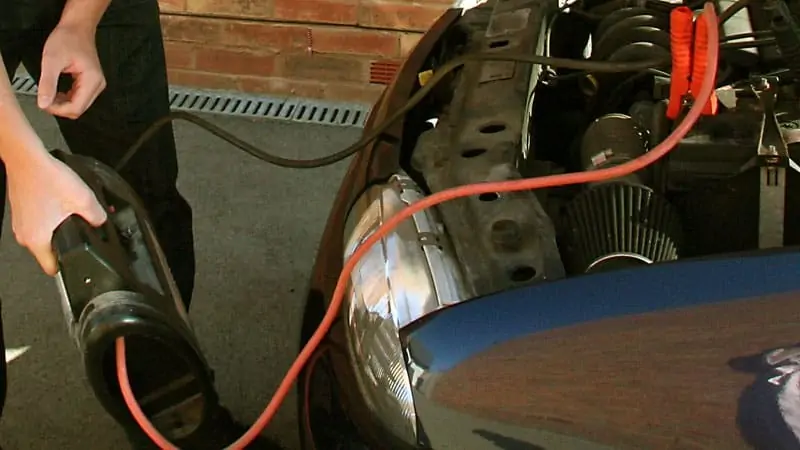I’m sure you know that a battery plays a vital role in how effective a vehicle performs. It helps to convert chemical energy to electrical energy, which is necessary to start up the car engine. Furthermore, car batteries are usually rated according to several different specifications and standards; some of them include CCA, MCA, PHCA, and HCA.
However, of all these standards, CCA or Cold Cranking Amperes happens to be the most popular industry ratings and the benchmark for checking the battery’s ability to start a car engine in cold temperatures. According to the general belief, the higher the Cold Cranking Amperes rating, the better the battery will perform for your car. Moreover, in colder weather, if your car battery uses a lower CCA, it’s important to increase the cold cranking amperes so you can achieve higher performance.
The best way to increase the Cold Cranking Amperes (CCA) within your overall car battery’s case is by thinning out the internal lead plates and making the battery with many cheap but strong electrolytes.
What are low CCA battery symptoms? What will happen if you use a lower CCA battery in your car? How exactly can you increase the cold cranking amperes on your car battery? You’ll find the answers to these frequently asked questions and more as you continue reading the rest of this article.
What Are Low CCA Battery Symptoms?

Before going ahead to address the burning question above, let’s first talk about what cold cranking amperes mean.
Cold Cranking Amperes or CCA is an industry rating for measuring a battery’s ability to start a car engine in cold or freezing temperatures. Furthermore, CCA focuses more on the number of amps that a 12-volt battery can deliver in a cold environment, usually at 0°F or -18°C, for 30 seconds.
There are tons of benefits attached to measuring the cold cranking amperes of a car battery. One of them is that it’ll give you better insights as to what you should expect from your car battery.
I’m sure you know that it’s much easier to start up a car engine when the weather is warm. But do you know that it can sometimes be challenging to start your engine when the temperature is extremely cold? Yes, this happens a lot, and here’s where the importance of having a high CCA battery comes in handy.
As earlier mentioned, the general belief is that the higher the Cold Cranking Amperes rating, the better the performance of the car engine. In case you don’t know, a battery with a lower CCA rating will most likely get damaged quickly. It’s pretty simple; your car alternator will overcharge it, causing it to go bad. Furthermore, a battery with a lower CCA rating will most likely fail to start your engine, especially in cold temperatures.
Here are some of the symptoms of low CCA battery
Now that you know that a low CCA battery may not be good for your car engine, let’s go back to the burning question; how will you know that your battery’s CCA is not adequate?
One of the warning signs that you’ll get to understand whether or not your battery has a low CCA battery is when you notice the cranking of your car engine is sluggish or failing to come up. Most times, you’ll encounter this issue in cold or freezing temperatures. Apart from that, another symptom that you’ll get is a loose or corroded connection. This, in most cases, happens when the alternator overcharged the low CCA battery.
How Do You Increase the CCA on a Car Battery?
As we now know, having a car battery with a low CCA rating isn’t good for the car. For you to achieve a better performance, there are two options for you. First, you can choose to replace the battery with a new battery that has a higher CCA rating. Apart from that, you can also consider increasing the CCA on the battery.
It’s worth noting that regardless of the two options mentioned above, you need to first understand how much CCA your car needs to start up. This is very important, as the value varies from vehicle to vehicle.
Back to the bunting question of how to increase the CCA on your car battery?
The best way to do that, as previously mentioned, is to make the battery with pretty cheap internal thin lead plates and lots of inexpensive but strong electrolytes. In a simpler term; increasing the CCA on your car battery requires you to thin out the battery’s internal plates.
What Will Happen if I Choose to Put a Lower CCA Battery in My Car?

Let me start by saying that it’s not a good practice to use a battery with a lower CCA rating on a car. In warm temperatures, you will most likely have your car engine run well. However, during cold temperatures, a car battery with a lower CCA rating will cause your engine to misbehave.
In most cases, lower CCA batteries will prevent the car engine from starting. There are a couple of times that this type of battery will also cause your engine to crank sluggishly.
The bottom line is, a battery with lower cold cranking amperes will cause performance problems for your car. That’s not all; it might even cause severe damages to your car engine – although this rarely happens.
Can I Use a Battery with Less CCA?
The simple and direct answer to the question is yes, you can always use a battery with less CCA. However, you need to keep in mind that this move isn’t recommended as it could damage your engine. Apart from that, a low CCA battery can also cause damages to your vehicle’s ignition system.

